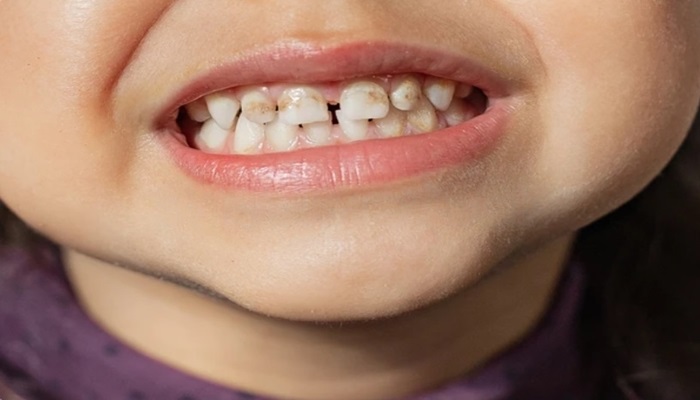
Seasonal allergies, particularly hay fever, can cause irritating symptoms like sneezing, itchy eyes, and congestion. But there’s an often-overlooked impact these allergies have on your oral health. While people typically focus on their nasal symptoms, the mouth can also suffer during allergy season. The Asthma and Allergy Foundation of America reports that around 50 million people in the US experience these seasonal allergies, and many may not realize that the effects go beyond the nose and throat, reaching the teeth and gums.
As your body fights off allergens, it triggers inflammation and dry mouth, making it harder for your mouth to stay moist and clean. This dry mouth can lead to tooth decay, gum disease, and bad breath. Not only can seasonal allergies lead to discomfort, but they can also affect your dental health in ways you might not have expected. It’s crucial to look out for these signs and take steps to protect your teeth and gums. While suffering from allergies is common, knowing how to manage their impact on your oral health can help you stay healthy during allergy season and beyond.
Ways Seasonal Allergies Affect Your Teeth
Seasonal allergies triggered by pollen, dust, or pet dander can have a significant impact on your oral health. The allergic reaction in the body often leads to a dry mouth, making it harder to protect your teeth and gums from bacteria. This dry condition can cause inflamed gums and increase the risk of oral health issues, including tooth decay.
Tooth pain
During seasonal allergies, the immune system is in a war against pollen and dust, leading to sinus pain and mucus buildup in the hollow spaces of the head. This pressure from maxillary sinuses, the largest sinuses in the face, can also affect the roots of the upper molars, causing tooth sensitivity. As a result, you might experience pain when eating or drinking hot or cold foods. The discomfort can shift depending on whether you sit, stand, or lie down, and may feel like a toothache. Allergy symptoms often mimic dental issues, but antihistamines can offer some relief. However, if the pain persists, a visit to the dentist is recommended to rule out decay or other underlying problems.
Dry Mouth
Seasonal allergies can lead to a dry mouth, a common side effect of allergic reactions and antihistamines. When you’re forced to breathe through your mouth due to a stuffy nose, it can reduce saliva production, which plays a crucial role in maintaining oral health. Saliva helps wash away harmful bacteria and neutralizes acids, so without it, your mouth becomes a perfect place for cavity-causing bacteria to multiply, increasing the chances of developing cavities and gum disease. The lack of moisture also leads to bad breath and discomfort, making it harder to keep your mouth fresh and healthy during allergy season.
Sore Throat
A sore throat caused by seasonal allergies often originates from postnasal drip, where excess mucus produced by allergies drips down into the throat. This can lead to pain and discomfort, and in some cases, it can even cause bad breath due to the mucus buildup. Runny noses and frequent coughs are common symptoms of allergies, but the irritation from mucus can also contribute to dental pain. Brushing your teeth won’t alleviate the sore throat since it’s primarily caused by the mucus irritating the throat. In severe cases, you may also notice swollen lymph nodes and a slight fever, all adding to the overall discomfort.
Bad Breath
Seasonal allergies often lead to increased mucus production and nasal discharge, which can drip down the throat and cause discomfort. As the mucus sits in the mouth, it creates a perfect environment for oral bacteria to multiply, leading to bad breath. This unpleasant condition is common during allergy season, as the excess mucus and blocked nasal passages make it harder to keep the mouth clean and fresh. The increased oral bacteria can also contribute to further oral health issues if not properly managed.
Gum Inflammation
Seasonal allergies can influence the health of your gums by triggering an inflammatory response. The swollen gums, which often appear red and tender, can lead to gingivitis, a mild form of gum disease. This happens because allergies cause nasal congestion, making it harder to breathe through the nose and resulting in mouth breathing. As a result, the dry mouth decreases saliva flow, which is important for cleaning your mouth and washing away harmful bacteria. The lack of moisture can increase the risk of tooth decay and worsen gum problems, such as bleeding and discomfort. If left untreated, it can even lead to more serious issues like an abscess. Prompt treatment is key to avoiding these complications.
Challenges for Individuals with Orthodontic Appliances
For individuals wearing orthodontic appliances like braces or aligners, seasonal allergies can present additional challenges. Nasal congestion from allergies makes it harder to breathe through the nose, forcing many to breathe through the mouth. This can dry out the mouth and make it more difficult to maintain proper oral hygiene, especially around braces or aligners. The accumulation of mucus and bad breath can also cause discomfort, making it harder to keep orthodontic devices clean and free of harmful bacteria. It’s important for those with orthodontic appliances to be extra careful during allergy season to avoid complications like tooth decay or gum inflammation.
Tips for Managing Oral Health During Allergy Season
- Counteract dry mouth – Drinking water helps to flush out excess mucus and counteract the effects of reduced saliva production. This keeps the mouth clean and fresh.
- Stay hydrated – Drink plenty of water to prevent dry mouth and dehydration, which can lead to an increase in bad breath and plaque buildup.
- Rinse with salt water – Gargling with a salt water solution made from a tablespoon of salt in warm water helps dissolve mucus and draw out irritants, relieving sinus pressure and helping with bad breath.
- Avoid food triggers – During allergy season, try to avoid foods that can worsen symptoms, such as dairy, wheat, and citrus. These can increase mucus production and cause more irritation in the mouth and throat.
- Keep brushing and flossing regularly – Even during a serious allergy attack, don’t skip your oral health routine. Brushing twice and flossing once a day is especially important to reduce the risk of oral health issues like tooth decay or gum disease.
- Talk to your doctor – If your allergies are severe, ask about treatment options like prescription medication or allergy shots to help control allergy symptoms and reduce their impact on your oral health.
- Visit the dentist regularly – If you’re experiencing tooth pain or any other allergy-related oral health problems, don’t hesitate to talk to your dentist and keep up with your dental appointments.



